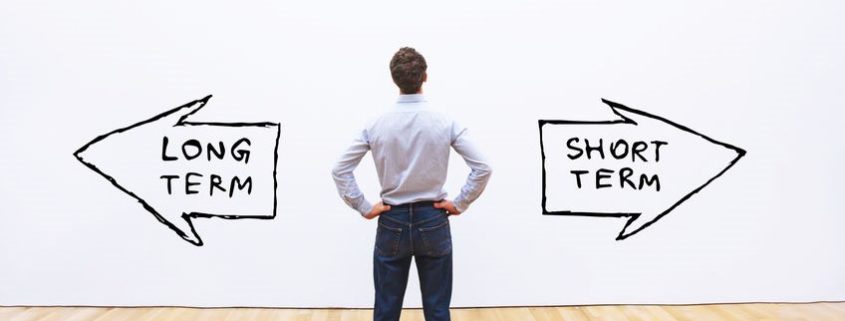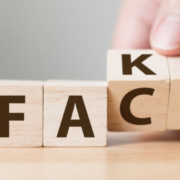Trading vs. Investing: What Are the Differences?
When you decide you want to get involved with the stock market, there’s more than one way for you to go about it. Two of the most popular approaches, which pretty much fall at opposite ends of the spectrum of options, are trading and long-term investing. Determining which approach is right for you is going to depend on a number of factors. Knowing the differences between trading and investing will help you decide which stock market approach is a better fit for your goals, interests, and strengths. Check out our breakdown of the two concepts below.
What is trading?
Trading is the buying and selling of stocks, options, and other securities within a short period of time with the goal of turning a quick profit. Profits are usually made by buying stocks at a low price and then selling for a higher price as their value appreciates. Alternatively, you can also short sell—borrow stock shares from companies that you expect to decrease in value, sell at the current high market price, and buy them back at the lower value—to make a profit.
Traders rely more on technical market analysis (trends in stock price fluctuation, news reports, etc.) and trading psychology than on long-term outlook for the market or individual investments.
What is investing?
Investing involves putting money into stocks, bonds, mutual funds, etc. that you anticipate rising in value over time. The goal of investing is to build wealth gradually, often over a period of several years, from gradual asset appreciation and compound interest.
Unlike a day trader, an investor will ride out market fluctuations and instead focus on long-term profit. When investing, you want to base your decisions on factors like market fundamentals, price-to-earnings ratios, and management forecasts, rather than short-term market trends.
What are the major differences between trading and investing?
Holding Time
The most obvious difference between trading and long-term investing is the amount of time you hold onto a position. As a trader, you won’t hold onto a position for more than 31 days at most. As an investor, you will hold onto your positions for one year or longer in a buy and hold strategy. Traders, therefore, are far more active in the market than long-term investors.
Risk
Because trading is dependent on daily stock market trends, which can be volatile, it is objectively riskier than investing. Investment strategy depends on assets increasing in value over time for a more slowly and steadily-accumulated profit. This means long-term positions are not really affected by daily market changes and come with less inherent risk.
Potential Returns
Both trading and long-term investing have the potential to yield high profits. The primary difference is the timeframe in which those profits are generated. In trading, gains happen fast and add up quickly, since you’re buying and selling positions more often. Although, as we mentioned, this puts your capital at a higher risk, it also has the potential for higher immediate reward. With investing, gains compound much slower but, if you wait long enough, can have just as high of a profit as trading over time.
Strategy
Decision-making in the trading world is much more technical than in long-term investing. If you want to be a successful trader, you must learn market patterns and timing in order to buy and sell positions at the right time for the most profit. You’ll be looking at the more technical aspects of individual stocks, rather than long-term company potential.
When you invest in positions, your decisions are driven less by market and stock technicalities and more so the fundamentals and principles of business philosophy and market growth. You’ll want to look at things like long-term company earnings projections for stocks you buy, as well as company history, to determine which assets are likely to consistently increase in value in the long run. Diversifying your portfolio is an essential step to fortifying your investments against short-term volatility and unexpected losses.
Is trading or investing right for me?
Many people will make long-term investments and trade in order to increase their chances at profiting from the stock market. But if you want to focus on one over the other, the best approach will depend on your goals, interests, skills, and personality.
Trading requires more active participation in the market, so you need to have time each day to devote to research and watching market trends. After you formulate a plan based on this information, you must have the patience and discipline to follow it without letting your emotions affect your decisions. This means being comfortable with taking calculated risks and prepared for the loss potential that comes with those decisions.
Long-term investing, on the other hand, requires a different type of patience and discipline. Despite market volatility, you must be confident in the longer-term decisions you’ve made and hold onto positions through short-term fluctuations. Investing does require less monitoring of your portfolio, but you will still need to check in regularly.
If you decide to get into trading, your plate is going to be full with market research and constant decision-making. Let Trader’s Accounting help you increase your potential profit by handling your trader tax strategy and preparation! Our experts can assist you with everything from tax forms and bookkeeping to new wealth-building opportunities and even starting a business for your trading enterprise.
Contact our team today to schedule your free 30-minute consultation!







Leave a Reply
Want to join the discussion?Feel free to contribute!